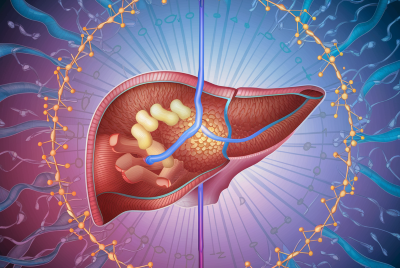Ketones Trace in Urine: Should You be Concerned?
Finding trace amounts of ketones in your urine can be surprising. But what exactly are ketones, and why are they showing up in your urine? This article dives into the science behind ketones, the meaning of finding trace amounts, and when it might be a cause for concern.
Understanding Ketones and Ketosis
Ketones are an alternative fuel source produced by the liver when the body’s preferred energy source, glucose (sugar) is limited. This typically happens during periods of fasting or following a low-carb, high-fat diet like keto.
The liver breaks down fat molecules into ketones, which the body’s cells can then use for energy. The metabolic state where the body primarily relies on ketones for energy is called ketosis.
Finding Ketones Trace in Urine: What Does It Mean?
Having a small or trace amount of ketones in your urine (ketonuria) is usually not a cause for concern. Ketone levels can fluctuate throughout the day, and finding trace amounts can be normal, especially if you’ve recently exercised, eaten a low-carb meal, or haven’t eaten for a while. At-home urine test strips can detect the presence of ketones in your urine.
However, very high levels of ketones can indicate a metabolic state called ketoacidosis. This is a serious complication of diabetes, and requires immediate medical attention.
How Much Are Trace Amounts?
There isn’t a universal definition of “trace amounts” when it comes to ketones in urine. Different test strips might have varying levels of sensitivity. Generally, a reading of “small” or “trace” on the test strip is considered a low level of ketones. If your test strip shows a moderate or large amount of ketones, it’s best to consult your doctor.
Here’s a breakdown of typical readings:
- Negative: No ketones detected
- Trace/Small: Low levels of ketones, likely not a concern
- Moderate/Large: Higher levels of ketones, consult your doctor
When to Be Concerned About Ketones Trace in Urine
While finding trace amounts of ketones usually isn’t a problem, there are situations where it warrants a doctor’s visit:
- Diabetes: If you have diabetes, even small amounts of ketones can be a sign of uncontrolled blood sugar. Regular monitoring and consulting your doctor are crucial. People with type 1 diabetes are at a higher risk of ketoacidosis, so being aware of ketone levels is especially important.
- Prolonged Fasting: Extended periods without food intake can lead to higher ketone levels. If you’re planning a long fast, discuss it with your doctor beforehand, especially if you have any underlying health conditions.
- Pregnancy: During pregnancy, maintaining healthy blood sugar levels is vital for both the mother and baby. If you’re pregnant and experience trace ketones, consult your doctor. They can help ensure your blood sugar is under control and advise on appropriate dietary adjustments.
- Vomiting or Diarrhea: Excessive vomiting or diarrhea can lead to dehydration and electrolyte imbalances, which can sometimes show up as ketones in the urine. If these symptoms persist for more than a day or two, seek medical attention to prevent complications.
- Breastfeeding: While breastfeeding doesn’t typically cause ketosis, some mothers might experience trace ketones due to changes in metabolism. This is usually not a concern, but consulting a healthcare professional specializing in lactation can provide peace of mind.
Understanding the Bigger Picture: Other Factors Affecting Ketone Levels
Several other factors can influence ketone levels in your urine, so it’s important to consider the bigger picture:
- Diet: As mentioned earlier, low-carb diets like keto can naturally lead to trace amounts of ketones. The body adapts to using ketones for energy over time, so levels might gradually decrease.
- Exercise: Strenuous exercise can temporarily increase ketone levels, especially if you haven’t eaten recently. This is because the body needs a readily available energy source during exercise.
- Medications: Certain medications, particularly those used to treat diabetes, can affect ketone levels. Discuss potential side effects with your doctor and monitor your ketone levels as advised.
Consulting Your Doctor is Key
If you’re concerned about trace amounts of ketones in your urine, especially if you have any underlying health conditions, consulting your doctor is always the best course of action. They can assess your individual situation, determine the cause of the ketones, and recommend appropriate next steps.
Here’s what to expect during your consultation:
- Medical History Review: Your doctor will review your medical history, including any medications you’re taking and any existing health conditions. This helps them understand if there are underlying factors contributing to the presence of ketones.
- Dietary Habits: Your doctor will likely ask about your recent dietary habits, including your overall carbohydrate intake. This information can help determine if your diet might be influencing ketone levels.
- Symptoms: Be prepared to discuss any symptoms you might be experiencing, such as excessive thirst, fatigue, nausea, or difficulty breathing. These symptoms can be associated with uncontrolled diabetes or ketoacidosis, and knowing about them can help guide your doctor’s diagnosis.
- Blood Sugar Monitoring: If you have diabetes, your doctor might recommend more frequent blood sugar monitoring to ensure your blood sugar levels are within a healthy range.
- Repeat Urine Tests: Depending on the situation, your doctor might recommend repeating the urine test at home or in a clinical setting to monitor ketone levels over time.
Living a Healthy Lifestyle for Optimal Health
Regardless of whether you find trace amounts of ketones in your urine, maintaining a healthy lifestyle is crucial for overall well-being. Here are some key strategies:
- Balanced Diet: Aim for a balanced diet that incorporates plenty of fruits, vegetables, whole grains, and lean protein sources. This helps ensure your body receives all the essential nutrients it needs to function optimally.
- Regular Exercise: Engage in regular physical activity most days of the week. Exercise helps manage weight, improve insulin sensitivity, and promote overall health.
- Adequate Hydration: Drink plenty of water throughout the day to stay hydrated. Dehydration can contribute to electrolyte imbalances, which can sometimes lead to the presence of ketones in the urine.
- Stress Management: Chronic stress can negatively impact your health in various ways. Explore stress management techniques like yoga, meditation, or deep breathing exercises to help manage stress levels.
- Prioritize Sleep: Aim for 7-8 hours of quality sleep each night. Poor sleep can disrupt hormones that regulate blood sugar and metabolism, potentially influencing ketone levels.
Conclusion: Knowledge is Power
Finding trace amounts of ketones in your urine doesn’t necessarily mean there’s a problem. However, understanding what ketones are, the potential causes of their presence, and when to seek medical attention is empowering. By consulting your doctor and prioritizing a healthy lifestyle, you can manage your ketone levels and promote overall well-being.
| Final advice: Ideally, Keto should not be a one-size-fits-all diet plan. The ideal is to have a personalized keto diet plan where your personal circumstances, needs and goals are taken into consideration in the plan. It must include an assessment of your body condition, daily physical activity level (couch potato, somewhat active, very active, etc.), gender, age, height, weight, dietary preferences (preferred types of meats, veggies, eggs, nuts, cheese, butter, etc.) Get your custom keto diet NOW |
References:
- National Institutes of Health: National Institutes of Health – Weight-Management
- American Diabetes Association: American Diabetes Association – Understanding Ketones
- Mayo Clinic: Mayo Clinic – Diabetic Ketoacidosis
- American Academy of Pediatrics: American Academy of Pediatrics – Ketones in Urine Test
- National Institute of Child Health and Human Development: National Institute of Child Health and Human Development – Fasting During Pregnancy
Transparency Disclosure: This article was written with AI assistance in the research and outlining but with comprehensive editing, refining and fact-checking by the author to ensure accuracy and high-quality content.





